Karma is wreaking its revenge on the Tibetan leadership. For decades the Tibetan authorities have persecuted Dorje Shugden worshippers whom they have tried very hard to destroy. But in the absence of an army or militia with which the Central Tibetan Administration (CTA) can unleash upon people its ‘enemies’ it has resorted to propaganda, indoctrination via disinformation, intimidation and scapegoating. It became a crime simply to have a family member or friend who was a Dorje Shugden believer. The claim was all Shugden practitioners are in fact Chinese agents paid to destroy Tibetan unity and therefore merely being seen with a Shugden believer was regarded as an act of treason.
China’s meteoric rise in recent years and the ensuing shift in the global balance of power in China’s favor spell problematic consequences for the Tibetan leadership and the CTA. For far too long, the Tibetan leadership has been sowing discord within Tibetan communities worldwide and making social outcasts of Tibetans that the CTA regard as barriers to their political ambitions. They have actively persecuted, discriminated and incited violence against Dorje Shugden practitioners. They have made pariahs of swathes of their own people, denying them medical care, government aid and the basic right to freedom of religion.
This is just one aspect of the social, political and religious discord the Tibetan leadership has planned and executed. Others include unwarranted involvement in the Karmapa issue, discrimination against the Jonangpa sect, and allegations of theft and embezzlement. But as the ancient and time-tested proverb goes, you reap what you sow.
Over the last couple of years there has been a growing trend of countries and political leaders from around the world who have turned their backs to the Tibetan leadership, even snubbing His Holiness the Dalai Lama in order to build or strengthen ties with China, the economic and political dragon of the east. The Tibetan leadership, whom China views as an illegal separatist group, are realising that no one wants to see them anymore since to do so would provoke the ire of a rising global super power than no nation can ignore.
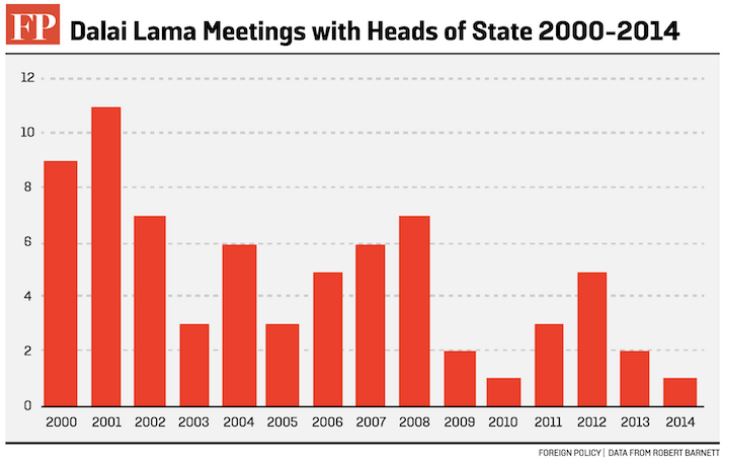
Clearly fewer world leaders are willing to be seen with the Tibetan leadership, even snubbing the opportunity to meet the Dalai Lama (Source: http://foreignpolicy.com/2014/05/06/blame-norway/)
So high is the opportunity costs of being on the wrong side of China that there is a crescendo of voices asking what a country or leader achieves by being friendly with and meeting the Tibetan leadership or His Holiness. The answer is very simple: they get a boost of that ‘oh-so-fleeting feel-good’ sense from meeting someone who is internationally renowned with a reputation of being a man of world peace and religious harmony.
In truth, it was ‘cheap’ to befriend the Dalai Lama and the Tibetan leadership, and it was an easy and convenient way to be seen supporting the rhetoric long associated with the Dalai Lama and the Tibetans in exile. And apart from light vocal support which is nothing more than the small change in our pockets, there is little else involved in ‘supporting’ the Tibetan cause. History shows this to be true and in fact leaders around the world do nothing to help the Tibetan cause, whether it is the rangzen movement (complete independence) or even the umaylam (middle way) approach propagated by His Holiness the Dalai Lama. Some may argue that the United States of America is an exception as a true friend of the Tibetan people and that would also be wrong. The US$19 million that America offers the Tibetans annually is a paltry sum that disappears into decimal fractions when considered against the US$35 billion the American government allocates as foreign aid.
So there is no upside being friends with the Tibetan leadership. On the other hand, with the fiscal and political rise of the global powerhouse that is China, leaders around the world are becoming aware of the importance of maintaining a good relationship with them.
And yet, despite the great diplomatic and economic gains that come from being friendly with China (that in turn sustains and stimulates respective local economies) there is still a handful of ordinary citizens in countries all over the world who still protest against China. When their actions are examined however, we see clearly that their strong principles are incongruous with their way of life. If they were so genuinely passionate about China’s so-called human rights violations and have decided to lobby against any form of ties with China, should they not be protesting against their own government’s involvement with China that creates jobs and a vibrant economy for their own country? What is worse than a person who does something, is a person who stands by idly and watches the events unfold.
The pendulum now swings against the Tibetan leadership and there are increasing instances in which the Tibetan leadership have been ignored or sidelined by world because to be seen with the Tibetan leadership reaps the same consequences as a Tibetan being seen with a Dorje Shugden practitioner.
United Kingdom: David Cameron Makes Up to China After Meeting Dalai Lama (May 2013)
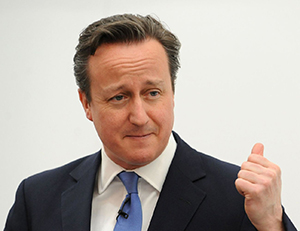
British Ex-Prime Minster David Cameron
Then British Prime Minister David Cameron stated his resolve for the UK to become a destination for Chinese investment, pacifying China after meeting with His Holiness the Dalai Lama in 2012. His office had previous refused to apologize for the meeting but in doing so jeopardized the £8bil Chinese investment in the UK, forcing David Cameron to take steps to make amends, mirroring a similar situation faced by former French President Nicholas Sarkozy.
China Granted Seat on United Nations Human Rights Council (May 2013)
Despite reservations from campaigners concerned with China’s history of human rights abuses, China was granted an influential seat on the United Nations Human Rights Council in 2013. Based on equitable geographical distribution, China ran for the seat uncontested, showcasing its political prowess.
Norway Snubs Dalai Lama (May 2014)
When the Dalai Lama was set to arrive in Norway to attend the 25th anniversary of his Nobel Peace Prize, the Norwegian government decided that none of its representatives would meet him. The decision was taken in order to appease China, after Liu Xiaobo was awarded the Nobel Peace Prize in 2010. Lu Xiaobo is considered a dissident by the Chinese and angered them to impose a partial trade embargo on Norwegian Salmon, one of the country’s most important exports, which the Norwegian government sought to resolve through not meeting His Holiness.
Dalai Lama Refused Entry to South Africa (October 2014)
South Africa refused to grant a visa to His Holiness the Dalai Lama in order to attend a summit of Nobel peace laureates. Though the summit was cancelled after other laureates pulled out in protest, South African authorities stood firm in their decision, showing their support to China.
Pope Francis Snubs Dalai Lama (December 2014)

Head of the Catholic Church, Pope Francis
As reported in the Telegraph, Pope Francis decided not to meet His Holiness the Dalai Lama at an event held for Nobel Prize winners, given the Catholic Church’s move to strengthen ties with China. Since both religious leaders are held in high regard and are known to promote the same values, the act of not meeting speaks volumes. It’s obvious that the Catholic Church sees its relations with China as more important than the Tibetan leadership.
Dalai Lama’s Meetings With Indian Politicians Cancelled (May 2015)
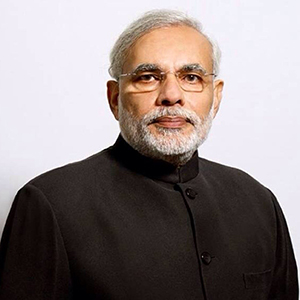
Narendra Modi, current Prime Minister of India
As a run up to Prime Minister Narendra Modi’s first State visit to China, he cancelled a meeting with His Holiness the Dalai Lama and Amit Shah, President of the Bharatiya Janata Party in order improve Sino-Indian relations. The meeting was considered ‘highly inappropriate’ given the upcoming visit, as it would have hindered attempts at improved relations between the two economic powerhouses.
Sino-UK Relations Strengthened After Xi Jinping’s State Visit (October 2015)
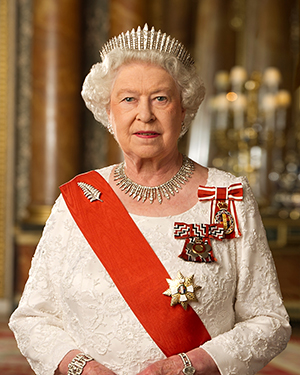
Queen Elizabeth II of Great Britain
During a four-day State visit to the UK, Xi Jinping heralded a new era of Sino-British relations and meetings between dignitaries, diplomats and politicians. Queen Elizabeth II described called the visit a “defining moment” and even praised the “everlasting friendship” between the two countries. It was the first State visit by a Chinese premier for 10 years. Xi Jinping was accompanied by his wife, the First Lady Peng Liyuan, and was received with full state honors. The Queen also described the visit as “a milestone in the unprecedented year of co-operation and friendship between the United Kingdom and China” as David Cameron and George Osborne pursue a policy of making Britain China’s most important European trading partner.
China’s Anger Over President Obama’s Meeting With Dalai Lama (June 2016)
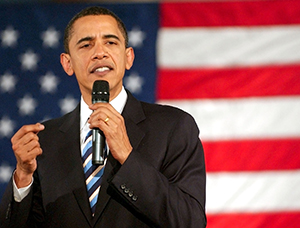
Former President of the United States, Barack Obama
A meeting between US President Barack Obama and His Holiness the Dalai Lama, sparked anger amongst Chinese officials. The Dalai Lama was received in the Map Room, compared to in the Oval Office, which is a venue typically reserved for government leaders and visiting heads of state. A displeased Beijing has previously criticized any move that would lend legitimacy to the Dalai Lama’s claim that Tibet should be independent from China.
Talks of Tibetans becoming Indian Citizens (August 2016)
Nikkei Asian Review recounts reports from a source in the Indian Rashtriya Swayamsevak Sangh group (National Volunteer Organization, or RSS) of talks between Chinese President Xi Jinping and Indian Prime Minister Narendra Modi surrounding the future of Tibetans in India. Once the arrangement is made public, Tibetans in India would be required to become Indian citizens upon the passing of His Holiness, effectively ending the CTA entirely.
Sikyong Lobsang Sangay Pleads with British Government Not to Forget the Tibetans (October 2016)
Prime Minister of the CTA, Sikyong Lobsang Sangay, pleaded with the British government not to forget the Tibetans, during a time when Britain is leaving the European Union and as it strengthen ties with China. Citing historical records, and Britain’s change in stance in 2008 when the then Foreign Secretary David Miliband recognized Tibet as part of the People’s Republic of China, he implored Britain to re-evaluate its engagement with China.
Philippines Moves to Support China (October 2016)
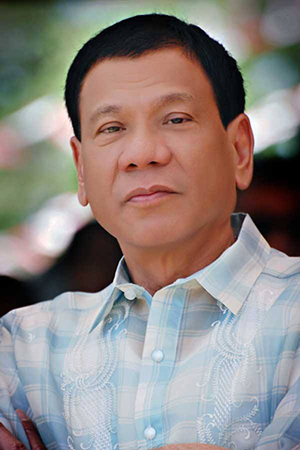
President Rodrigo Duterte of the Philippines
Traditionally a stronghold of American interests and reliance on their support, the Philippines has made moves to align itself with the People’s Republic of China. President Rodrigo Duterte visited China together with over 200 Filipino businessmen for talks, praising China’s internal and external policies, stating that it was China that could help to make the Philippines, a major player in the region. He made it clear where he sees the future of the Philippines, side by side with China.
China Cancels Top-Level Bilateral Meeting with Slovakia (November 2016)

President of Slovakia, Andrej Kiska
China cancelled a highly anticipated top-level bilateral meeting with Slovakia’s Prime Minster Robert Fico, following Slovakia President Andrej Kiska’s move to meet His Holiness the Dalai Lama. Channel NewsAsia reports that the president’s move damaged important relations with China, and steps were taken to mend ties with the Chinese.
Vatican Deal With China To Normalise Relations (November 2016)
In a move to improve relations with China and to normalize the Holy See’s religious presence in China, the Catholic Church are in talks with Chinese authorities. The Pope has mas made it very clear in the past that he is eager to reach some sort of consensus regarding the Church’s presence in China, which outlawed religion as part of its historical communist regime.
Former Nepalese Prime Minister Confirms Pro-Chinese Stance, Denies Involvement With Tibetan leadership (November 2016)
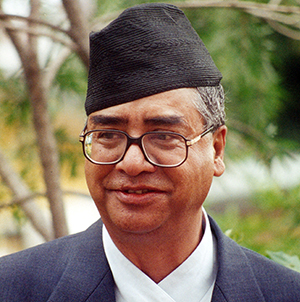
Ex-Prime Minister of Nepal, Sher Bahadur Deuba
Former Prime Minister of Nepal, Sher Bahadur Deuba confirmed the Nepalese Government and his own Nepali Congress party are firm on the ‘one-China’ policy in response to ‘false reports’ of his meeting with His Holiness the Dalai Lama in India. This policy sees Tibet as part of the People’s Republic of China, effectively negating the legitimacy of the CTA, who are seen as a separatist movement and not a governing body.
Czech Minister’s meeting with China Cancelled (November 2016)

Marian Jurecka, Agricultural Minister of the Czech Republic
China cancelled meetings with Czech Agricultural Minister Marian Jurecka following the Culture Minister Daniel Harmon’s meeting with the His Holiness the Dalai Lama in Prague. This incident led to the Czech President, Prime Minister, Head of the Senate and Head of Chamber of Deputies issuing a joint statement, which clarified that meeting with the Dalai Lama did not equate a change in the Czech Republic’s official policies, which is pro-Chinese, in an attempt to placate them.
Given the growing trend of countries and leaders supporting China, the CTA are floundering in their attempts to maintain relevance on the world scene. Rather than continue with their attempts to counter Chinese authorities, it would make sense for the Tibetan leadership to become friends with China in order to survive the rise of the colossal economic dragon of the East.
As world leaders continue their support for China, will the CTA realize they need to stop antagonizing China and change with the times, or will the previous karmic potentials of discord they planted through the ban on Dorje Shugden and other negative actions catch up to them? Will they pull through this shift in world politics and economics or will they fall by the wayside in China’s massive wake?
In terms of karma, you reap what you sow. Since the CTA persecuted, discriminated and segregated, they created the karma to receive the exact same outcome. The signs of this manifestation are present in the world now, as China comes to the forefront of global politics and economics, and countries re-align themselves with a new world order but are the CTA really taking note of it? Only time will tell, but from the CTA’s history of political inadequacy and self-caused issues, it would take a miracle for them to implement sincere change, even in the face of such drastic global transformation. The Tibetan leadership should really make amends with all the damage they have done with the discriminatory Dorje Shugden ban where devotees are so segregated and made out to be pariahs. They should apologize and stop encouraging and ‘advising’ against the Dorje Shugden religious practice or any practice. Give religious freedom and purify their karma. Time is not on their side.
MORE NEWS LIKE THIS